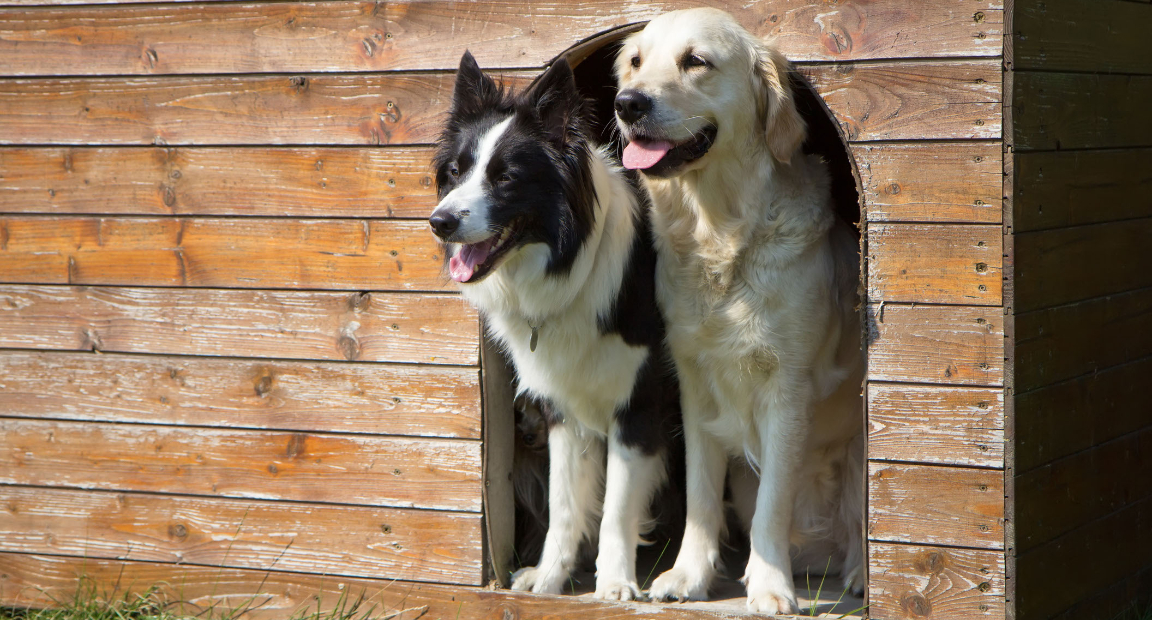What is Canine cough?
Canine cough, sometimes referred to as canine infectious tracheobronchitis or “kennel” cough, is a respiratory ailment that is very contagious in dogs. Viruses (such the canine parainfluenza virus) and bacteria (like Bordetella bronchiseptica) are common causes of canine cough. Dogs can develop kennel cough through close contact with infected dogs, such as in boarding kennels, doggy day-care, dog parks, or grooming facilities, which is how the disease received its common title of “kennel cough”.
Signs & Symptoms
As the name suggests, one of the main symptoms of canine cough is a cough. It may sound like a harsh, “honking” cough. It may seem like the affected pup patient has something stuck in their throat and could sound like gagging or retching. Affected dogs may also have discharge from the nose or eyes. Sometimes infected dogs may appear lethargic, lose their appetite, or have a fever. Severe cases can lead to complications like pneumonia, but it is not uncommon for the patient to appear quite well other than the harsh cough.
It is important to remember that there are many causes for coughing in dogs including parasites like Angiostrongylus or Oslerus osleri (lung worms), airway foreign bodies, pneumonia, and heart disease, so if your dog’s cough persists longer than a couple of days, or he or she appears to be unwell, be sure to consult your veterinarian for advice.
Diagnosis
Diagnosing Canine cough includes a thorough physical examination of the canine patient by the veterinarian as well as questions about the symptoms and medical history. This can often include questions about recent kennelling, vaccination status, or contact with other coughing dogs.
It is not uncommon for a diagnosis of canine cough to be made based symptomatically, based on the dog’s observed clinical signs and history without further testing. Further diagnostic tests such as a blood tests, parasite tests, or chest X-rays may also be recommended in some situations.
Treatment
A lot like the common cold in humans, canine cough will generally resolve with rest and care. After diagnosing canine cough, the veterinarian may prescribe cough suppressants or anti-inflammatories to help reduce the cough and irritation to the throat. Occasionally, antibiotics may be prescribed. If your dog is prescribed antibiotics, be sure to complete the full course as instructed by your veterinarian. Canine cough is contagious, so during your pup’s recovery period, ensure they are isolated from other dogs and avoid areas like dog parks to avoid spreading the disease to others.
According to PetSure data in 2022, canine cough had an average claimed cost of $207.00 and a maximum claimed cost of $13,325.*
Recovery
Most dogs recover from Canine cough uneventfully with supportive treatment and care. Occasionally complications may occur, such as pneumonia or chronic bronchitis. Rarely, very young, old, or immune compromised patients may succumb to Canine cough and secondary complications.
Prevention
It may be possible to avoid canine cough infection by ensuring your dogs are up to date with vaccinations, especially before entering boarding kennels or other areas they could become exposed to infected dogs. It is important to remember that even vaccinated dogs can still catch canine cough, although it is often less severe in vaccinated dogs.
As for any infection, maintaining overall good health with excellent nutrition, a stress-free environment and addressing other health complaints promptly can help lessen the signs or likelihood of becoming infected. Always maintain great hygiene around all pets by washing hands before and after touching pets, especially if they are unknown animals or their health status is unknown.
FAQ’s
Symptoms of canine cough can include a harsh “goose honk” cough, nasal or ocular discharge and occasionally lethargy, fever, or loss of appetite.
Treatment for Canine cough is often symptomatic and supportive but can include anti-inflammatories, cough suppressants, antibiotics, rest, and good nutrition.
Kennel cough is spread through contact with infected dogs. It can spread through the air when infected dogs cough or sneeze, or through direct contact with contaminated surfaces, such as shared water bowls or toys.
This non-core vaccination typically helps to protect against Bordatella bronchiseptica and Parainfluenza.
It is very rare, but humans can catch Bordetella bronchiseptica. This is most likely to occur in immune compromised people. If you are immunocompromised, you may be more vulnerable to zoonotic diseases and should take extra precautions around pets.
Canine cough is generally covered by specified accidental injury and illness pet insurance policies administered by PetSure (check our brand partners at petsure.com.au/partners), unless related to a pre-existing condition or exclusion. Please refer to your policy documents and Product Disclosure Statement (PDS) for more information.
Preventative and routine care (non-insurance benefit) items such as vaccinations whether recommended by your veterinarian or not are not covered by PetSure policies. Please refer to your policy documents and Product Disclosure Statement (PDS) for more information.
According to PetSure data in 2022, canine cough had an average claimed cost of $207.00 and a maximum claimed cost of $13,325.*
References
Approach to the young coughing dog
‘Kennel Cough’ in a patient following allogeneic hematopoietic stem cell transplant
*Reimbursement for these claims would be subject to limits, such as annual benefit limits or sub-limits, benefit percentage, applicable waiting periods and any applicable excess. Cover is subject to the policy terms and conditions. You should consider the relevant Product Disclosure Statement or policy wording available from the relevant provider. Please note that the values calculated are based on all claims for that condition and medically related conditions in each calendar year.
Insurance products are issued by The Hollard Insurance Company Pty Ltd ABN 78 090 584 473, AFSL 241436 (Hollard) and/or PetSure (Australia) Pty Ltd ABN 95 075 949 923, AFSL 420183 (PetSure) (from 8 May 2023 only), administered by PetSure and promoted and distributed through their authorised representatives and distribution partners.
Any advice provided is general only and does not take into account your individual objectives, financial situation or needs. Cover is subject to the policy terms and conditions. Please consider the Product Disclosure Statement (PDS) to ensure this product meets your needs before purchasing, or choosing to continue with the product. PDS and Target Market Determination available on our partners’ websites. Meet our partners at petsure.com.au/partners.
Pet insurance can help by covering a portion of the eligible vet bill if the unexpected happens. Because it is difficult to predict the costs of veterinary care, it can help to have measures in place to help prepare for the unexpected. Check out our partner network and explore our policy tools to find a pet insurance policy.
Not all conditions or items are covered by Pet Insurance. Refer to the applicable Product Disclosure Statement for information about coverage and exclusions.



 Fact checked
Fact checked





